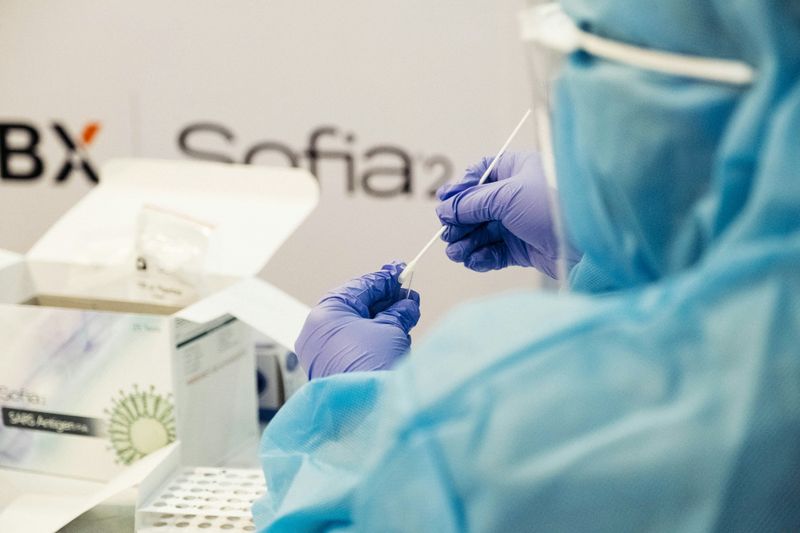Could AI (artificial intelligence) save humanity? As AI advances rapidly, society is split: some believe AI will help save our planet and improve human lives, while others warn it could lead to disaster.

Could drug discovery be the area that showcases AI's positive impact, bringing real benefits to people? Let’s explore some key advantages and disadvantages of using AI for drug discovery.
What is Drug Discovery?
Drug discovery is the process of finding and developing new medicines to treat diseases safely and effectively. Imagine AI for drug discovery like finding the perfect key to unlock a tricky lock.

Each step helps ensure the drug fits perfectly to treat the disease, just like finding the right key for a lock.
Each step helps ensure the drug fits perfectly to treat the disease, just like finding the right key for a lock.

Step 1: Identify the Lock
First, you know there's a lock you want to open. Identifying the obstacle is like diagnosing a disease that requires treatment.

Step 2: Find the Keyhole
Next, you examine the lock and locate the keyhole, just like scientists identify the specific part of the disease (like a protein) they need to "unlock".

Step 3: Search for Possible Keys
You gather different keys and try to find one that might fit, similar to how scientists search for compounds that could work on the disease target.

Step 4: Test Keys in a Safe Place
Before putting the key in the real lock, you test it to make sure it’s the right shape and won’t damage the lock. Similarly, scientists test promising compounds in labs to check for safety.

Step 5: Try the Key in the Real Lock
If the key passes the test, you try it in the actual lock. This is like testing the drug in people to ensure it works safely.
How Does AI Help in Drug Discovery?
In this field, AI uses algorithms that can analyze large amounts of data to find potential new drugs quickly. AI for drug discovery is like a super-smart detective that sifts through millions of clues (data) to find the best leads (drug compounds) for solving a case (treating a disease).

What Are the Pros of AI for Drug Discovery?
AI speeds up drug discovery.
AI is transforming the drug discovery process, which traditionally took years. By learning patterns from vast datasets, AI accelerates drug research, opening the door to treatments for diseases that once seemed untreatable.
On average, it takes 12 years to develop a new drug from the initial discovery to regulatory approval. The process is complex, costly, and uncertain, with a failure rate of over 95%.
 Photo by freestocks on Unsplash
Photo by freestocks on UnsplashAI increases precision in drug design.
AI can tailor treatments to individual patients by analyzing their genetic makeup, leading to better outcomes. In addition, AI-designed drugs can target diseases so precisely that they work on rare conditions, previously too costly to explore.
 Photo by JC Gellidon on Unsplash
Photo by JC Gellidon on UnsplashIn summary, AI’s ability to accelerate and personalize drug discovery could be life-saving for countless people, as it dramatically reduces development time, increases precision, and opens new possibilities for treating previously untreatable diseases.
Quiz
Imagine you're leading pharmaceutical company that is considering using AI to develop cancer treatments by analyzing patients' genetic data. What’s a key advantage?
What Are the Cons of AI for Drug Discovery?
AI is expensive to set up.
AI systems require specialized data and infrastructure, which can be costly to establish initially. While AI can reduce overall costs, the initial investment is often in the millions.
 Photo by Taylor Vick on Unsplash
Photo by Taylor Vick on UnsplashAI is dependent on high-quality data.
AI can only make accurate predictions if it has high-quality, unbiased data, which can be difficult to obtain. Poor data quality is one of the biggest reasons for AI prediction errors, leading to failed drug discoveries.
 Photo by Claudio Schwarz on Unsplash
Photo by Claudio Schwarz on UnsplashThese AI pitfalls can waste resources and harm the planet. They may also threaten the safety and effectiveness of new medicines, impacting human health on a large scale.
Quiz
Imagine your pharmaceutical company is considering implementing AI for drug discovery. However, your team highlights several challenges. What is a key concern when adopting AI in this context?
Take Action

Your feedback matters to us.
This Byte helped me better understand the topic.
